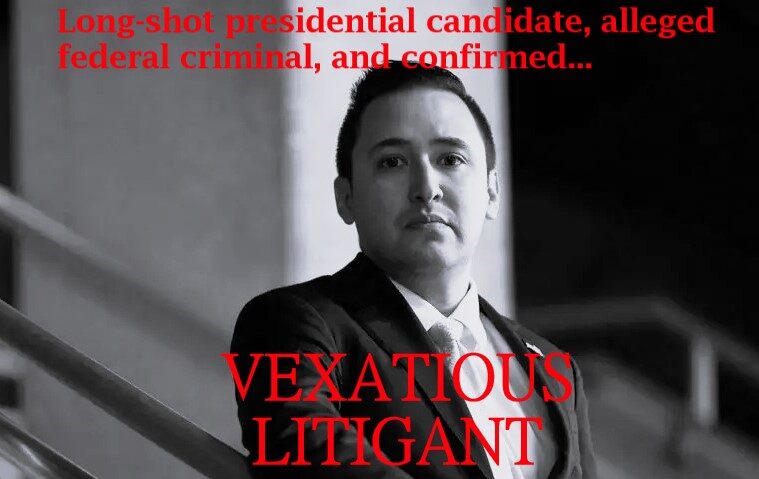
Case Update
Case Status: Victory in District Court
Castro v. Doe
- Categories:
- Cases
- Freedom of Speech
Victory! CIR Successfully Defends Wikipedia Editor’s Anonymous Free Speech from “Vexatious Litigant”
On March 25, 2024, US District Judge Mark T. Pittman dismissed Texas politician John Anthony Castro’s frivolous defamation lawsuit, which sought $180 million in damages from CIR’s client over a handful of unflattering entries that appeared on Castro’s Wikipedia page. The complaint alleged, without evidence, a conspiracy between Donald Trump and several organizations associated with his presidential campaign to post damaging information about Castro on Wikipedia, with the assistance of our client, an anonymous Wikipedia editor (who writes under the username “Chetsford”). The suit threatened to unmask Chetsford, who volunteers his time to Wikipedia, and violate his right to engage in anonymous political speech concerning public figures like Castro.
Castro filed suit in United States District Court for the Northern District Of Texas alleging that Chetsford (with the support of Trump and his campaign entities) had posted defamatory statements about Castro on his Wikipedia page, including that Castro was under federal investigation (a claim which appears to have been vindicated), that he was a “sleazy tax attorney,” and that he never served in the U.S. military. In addition, Castro asked the United States District Court for the Northern District of California to compel Wikimedia, Inc. to disclose information that would allow Castro to unmask Chetsford.
CIR took up Chetsford’s defense to fight the use of outlandish and frivolous lawsuits designed to suppress speech that politicians and public figures find unfavorable. Castro’s efforts to unmask Chetsford posed a threat to the right to anonymous political speech, which is essential to the founder’s vision of freedom of speech. The Founders themselves frequently engaged in anonymous speech to promote American Independence and the adoption of the U.S. Constitution.
Castro named “Vexatious Litigant”
Judge Pittman ruled that the court lacked personal jurisdiction over several of the named defendants and that Castro failed to properly effect service on others, including Chetsford. With the Texas court’s finding, the California court will almost certainly dismiss the ancillary action seeking a disclosure of Chetsford’s identity, which it had already provisionally dismissed (contingent upon the final decision in the Texas court).
The Texas court went further than merely dismissing Castro’s suit; it took the opportunity to declare Castro a “vexatious litigant” based on his extensive record of filing similarly frivolous suits, which regularly violate the Constitution’s due process protections for out-of-state defendants. This declaration means that Castro will need to seek leave from the court before he files any future lawsuit in the district.
While CIR had hoped for a judgment based on the substance of Castro’s frivolous claims of defamation, the decision frees Chetsford from the threat of a lengthy and disruptive lawsuit and the possibility of losing his anonymity. Castro may yet appeal, but Judge Pittman’s declaration that Castro is a vexatious litigant is a strong statement that Castro’s manipulations of legal process are out of bounds. We can think of no more fitting end to this suit.
- Read more about the case at the Volokh Conspiracy
- Read the full opinion here
